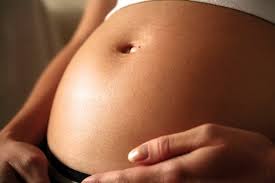
Doctors are warning pregnant women in Fife to stay away from farm animals.
Those who come into contact with sheep during lambing could pick up an infection.
Medics say it could place the health of an expectant mother, and her unborn baby, at risk.
Acting Chief Medical Officer Dr Aileen Keel said: "Even though the number of pregnancies affected by contact with infected animals is extremely small, it's very important that pregnant women understand the risks and take appropriate precautions. There are simple steps that can be taken to avoid these risks.
"If pregnant women experience a fever, or flu-like symptoms, and think they might have acquired an infection from a farm-like environment, they must seek immediate medical advice.
"These risks are not confined to the spring, and do not only apply to sheep, but also to cattle and goats that have recently given birth. All can carry similar infections."
To avoid the possible risk of infection, pregnant women should:
• Not help to lamb or milk ewes, or to provide assistance with a cow that is calving or a nanny goat that is kidding
• Avoid contact with aborted or new-born lambs, calves or kids or with the afterbirth, birthing fluids or materials (e.g. bedding) contaminated by such birth products
• Avoid handling (including washing) clothing, boots or any materials that may have come into contact with animals that have recently given birth, their young or afterbirths. Potentially contaminated clothing will be safe to handle after being washed on a hot cycle
• Ensure contacts or partners who have attended lambing ewes or other animals giving birth take appropriate health and hygiene precautions, including the wearing of personal protective equipment and clothing and adequate washing to remove any potential contamination
Medics say farmers and livestock keepers also have a responsibility to minimise the risks to pregnant women, including members of their family, the public and professional staff visiting farms.


 Man, 44, seriously injured in hospital after crash between Comrie and Rosyth
Man, 44, seriously injured in hospital after crash between Comrie and Rosyth
 John Swinney announces SNP leadership bid
John Swinney announces SNP leadership bid
 Closures on A92 from TONIGHT for roadworks
Closures on A92 from TONIGHT for roadworks
 14°C
14°C
 12°C
12°C
 16°C
16°C